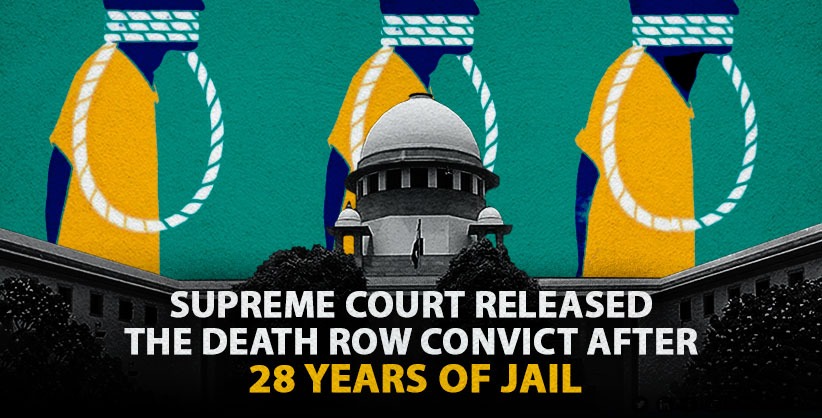NEW DELHI: After more than 28 years of jail, the Supreme Court has on Monday ordered release of a death row convict upon finding that he was a minor boy aged 12 years and six months as per his school register at the time of committing murders of five women and two children at Pune in 1994.
A bench of Justices K M Joseph, Aniruddha Bose and Hrishikesh Roy ordered that the applicant to be released forthwith.
The applicant was arrested on September 5, 1994. On August 26, 1994, as per the prosecution case sustained by all the judicial fora including the top court, the applicant along with the two other accomplices had committed murder of five women, (one of whom was pregnant) and two
children.
Giving its finding on a plea made under Section 9(2) of the Juvenile Justice (Care and Protection of Children) Act, 2015, the top court held that the death penalty --- awarded to him by a trial court and upheld by the High Court as well as the top court -- would stand invalidated.
The court, though cognisant of the very grisly nature of the offence and involvement of a boy into it, said it would not look into these factors in view of an inquiry report declaring him to be juvenile.
"The other factor which has crossed our mind is as to whether a boy of 12 years could commit such a gruesome crime. But though this factor shocks us, we cannot apply speculation of this nature to cloud our adjudication process. We possess no knowledge of child psychology or criminology to take into account this factor while examining the report of the inquiring judge," the bench said.
Moreover, the age of the applicant as revealed in the ossification test keeps the age of the applicant as claimed by him, within the range specified in the inquiry report by a district court judge, the bench added.
After multiple failed bids, the applicant here on October 30, 2018 filed an application before the top court seeking a declaration that he was a juvenile at the time of the offence.
The court then ordered an inquiry by the Principal District and Sessions Judge Pune in 2019, who gave a finding that the applicant was of 12 years and six months at the time of offence on August 24, 1994.
Accepting the inquiry report, the bench said he cannot be subjected to the capital punishment.
"The order sentencing him to death would stand invalidated by operation of law. He shall be set free forthwith from the correctional home in which he remains imprisoned, as he has suffered imprisonment for more than 28 years," the bench said.
Under the Juvenile Justice Act, a child in conflict with law cannot be put into a correctional home for more than three years irrespective of the nature of the offence.
During the hearing, the bench, which called for the source of record of the date of birth of the convict, pointed out that the State, in this case, has not come up with any such compelling evidence which would render such certificate to be unreliable or false.
"Here, we cannot indulge in any guesswork to doubt the entry in the school register. No evidence has been led to contradict the basis of the age of the applicant," the bench said.
"We accept the report of the inquiring judge. We declare that the date of birth of the applicant as reflected in the certificate issued by the Rajkiya Adarsh Uccha Madhaymik Vidyalaya, Jalabsar, tehsil Shri Dungargarh, district Bikaner, dated January 30, 2019, is to be accepted. Going by that certificate, his age at the time of commission of offence was 12 years and 6 months. Thus, he was a child/juvenile on the date of commission of offence for which he has been convicted, in terms of the provisions of the 2015 Act," the bench said.









